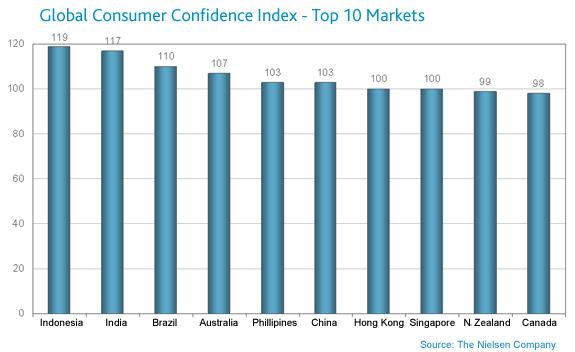
Political turmoil and instability is having an impact on business confidence in the UAE and Middle East, according to the latest survey of finance professionals.
The Global Economic Conditions Survey for the first quarter of 2015, carried out by ACCA (the Association of Chartered Certified Accountants) and IMA (the Institute of Management Accountants) also shows that while lower oil prices have helped oil-importing nations such as the USA and Europe, they have undermined performance in many net oil-exporting regions such as Asia Pacific and the Middle East.
Confidence has dipped in the Middle East in the first quarter of 2015. Dubai, in particular, has seen property prices fall by around 5% over the course of the year, while the amount of debt held by state related entities is worth around $140bn according to the IMF, which is a growing indicator of concern for many economists.
Given the continuing political tension in the region, it is perhaps not surprising that finance professionals have a more negative perception of doing business in the region.
The survey also shows that there has been a sharp decline in recruitment since the last quarter of 2014. In contrast to Q4, the UAE in Q1 has sharply reduced its intake of new hires, which suggests the economic climate may not be as sound as in previous quarters and there may be trouble ahead. In a surprise U-turn from the fourth quarter of 2014, staff cuts were reported as being the greatest in the Middle East, with 50% of respondents experiencing this which was coupled with a sharp and sudden fall in companies investing in staff development.
The first quarter of 2015 also saw a sharp decline in new orders in the UAE and the availability of capital has decreased dramatically in the Middle East (38%), implying that getting hold of sufficient loans to fund businesses investment is even more difficult in the regions than three months ago.
Lindsay Degouve de Nuncques, head of ACCA Middle East said:“ Clearly the uncertainty in the region, coupled with lower oil prices, has had a negative impact on confidence in the finance profession. There are strengthening signs of recovery elsewhere, which may help in the long run. But the shorter-term indicators have deteriorated for the region over the last quarter.”
On a global scale there are clear signs that the economic situation is improving. For the second quarter in a row, senior finance professionals are beginning to sense that a recovery is taking hold.
While the report shows that confidence is at the highest level among Chief Financial Officers since 2011, the recovery is still a ‘work in progress’. For example, while the report showed that capital spending and capital investment had fallen back, globally more money was being invested in staff, and there were signs of growth in employment and new orders.
“Confidence is returning to the business sector – but there is a recognition that there is still a way to go before the global economy can be said to have made a full recovery,” said Raef Lawson, Ph.D., CMA, CPA, IMA Vice President of Research and Policy. “Amidst improving confidence it is encouraging to see that businesses are investing in people – the key element to any future success.”
Lawson added: “However, the optimism is tempered by continuing uncertainty. Geopolitical instability in Ukraine and Russia and conflict in areas of the Middle East continue to cast long shadows over the global economy.”
Globally, respondents were also reporting fewer problems with late payments and fewer had concerns about suppliers or customers going out of business.
The report also showed that CFOs of larger companies were more pessimistic than those working in smaller businesses. This may be because they are more likely to be international, and therefore more likely to be exposed to uneven recovery and economic performance in different markets.



































